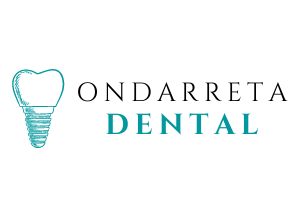What is Conservative Dentistry?
Conservative dentistry is the part of dentistry, along with periodontics, responsible for saving teeth affected by cavities. Caries is the most common tooth disease and it is important to treat it before the affected tooth is lost. Depending on the stage of evolution of the caries and therefore, depending on the amount of tooth affected by bacteria, one treatment or another will be required.
The obturation (filling) It is the most conservative treatment and is performed when the decay has affected the outermost layers of the tooth: enamel and dentin. Instead, the endodontics or root canal treatment - popularly known as "killing the nerve" - will need to be performed when the action of the bacteria has advanced to such a point that it has reached the pulp (nerve of the tooth) or has gotten so close that it has affected it as well.
It is vitally important that fillings and endodontic treatments are performed by a dentist specialized in this area of dentistry since the success of the treatment is much higher and the prognosis of the tooth depends on it.
At Clínica Dental Ondarreta we carry out all dental treatments thinking about improving your health and the appearance of your mouth, always working with high quality materials, with the latest technology, using minimally invasive techniques and carried out by our specialist.
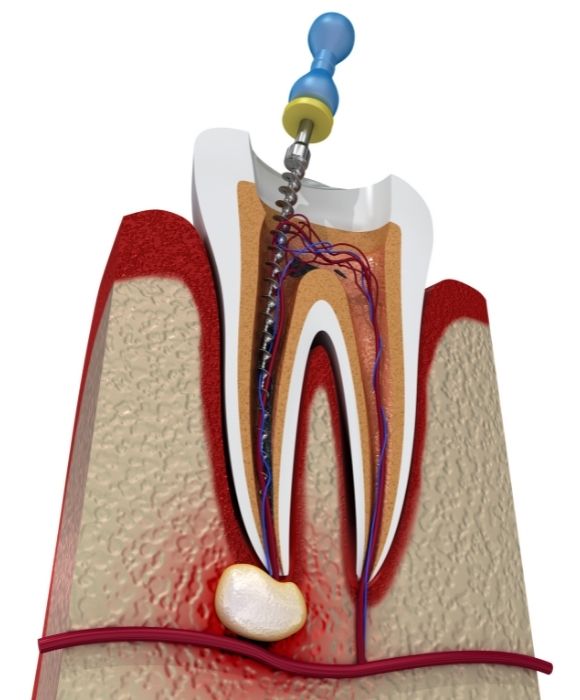
Fillings -fillings-
Fillings, popularly known as fillings, are the most common treatments performed in any dental clinic. Its objective is to save the tooth affected by a mild or medium-severity cavity.
It is very important to perform fillings in a meticulous and minimally invasive way to preserve as much as possible healthy dental tissue once the caries has been eliminated. In addition, it is important to achieve a good seal between the healthy part of the tooth and the filling to avoid bacterial leakage and treatment failure. That is why in our clinic, all conservative treatments are performed with a rubber dam, an elastic device that allows the diseased tooth to be completely isolated from the rest of the mouth. In this way we provide the patient with greater comfort during the procedure (preventing the products we use from “falling” into the mouth) and we ensure that the tooth is completely disinfected without being contaminated by saliva bacteria or possible contaminated fluids.
Rotary endodontics
Endodontics is a dental technique whose purpose is to preserve and extend the life of teeth infected by aggressive or extensive cavities. The procedure consists of removing the dental pulp (tooth nerve) when it has become inflamed or infected.
The causes of pulp inflammation or infection are:
– Deep cavities
– Trauma
– Fractures and fissures
– Previous very invasive dental treatments
The treatment consists of removing the pulp of the tooth (nerve) and disinfecting the cavity where the infected nerve was previously. This space is then filled and sealed with biocompatible materials that allow said tooth to be kept in the mouth for a long time without the need to resort to extraction.
This procedure is performed using rotating appliances, small instruments known as files, and topical disinfectants and antiseptics that allow us to disinfect and clean the inside of the tooth in a precise and subtle way. Subsequently, the cavity is sealed with thermoplastic materials to prevent reinfection, and finally the tooth is restored to give it its initial anatomy and allow its functionality.
Endodontics is a completely painless procedure, as it is performed under local anesthesia. It is also very comfortable for the patient because we always work with a rubber dam - a protector - that guarantees comfort and safety throughout the procedure.
Generally, endodontic treatment is performed in a single session. Although there may be slight discomfort for two or three days after treatment, it usually disappears with mild pain relievers.
It is very important, to guarantee the success of the treatment, that the endodontics be performed by a dentist specializing in endodontics.
Re-endodontics
Sometimes, for different reasons, endodontics can fail. This means that a tooth that had previously been rootodontized becomes infected again, whether it may have been a few weeks or many years ago.
When this happens, the treatment is very similar to endodontics, but somewhat more complex since you have to remove all the sealing material that was put in the first conductive treatment, disinfect the tooth again and seal it again.
Despite being a complex treatment, it is a very comfortable treatment for the patient and completely painless since it is performed under local anesthesia and always with a rubber dam. It is very important to guarantee success that endodontics is performed by a dentist specializing in endodontics.
Safe amalgam removal
At Ondarreta Dental Clinic we remove your silver amalgams - metal fillings - in a safe way for you, for us and for the environment.
– We use rubber dams to prevent you from ingesting the silver amalgam that we remove.
– We work with masks that filter the mercury particles it contains and with a double vacuum cleaner to prevent its ingestion.
– We have amalgam filters so that the remains of mercury do not go directly to wastewater and the sea.
Research shows that regular professional cleaning can reduce the risk of dental cavities (decayed teeth) and periodontal (gum) disease, and most people like to have their teeth oral cleaned once or twice a year. anus. It is recommended to attend the dental clinic every 6 months to perform a professional cleaning with ideal products for this and, very importantly, in the quantities and components that the Doctor recommends. During this cleaning, in addition, a free check-up will be carried out in our clinic to ensure the preservation of a perfect oral condition.
The estimated age is usually 10 years or older in the case of malocclusion, although the truth is that with only 3 years of age when you already have baby teeth, bite problems can be detected and an alternative treatment established. to later place the Orthodontics.
Until relatively not long ago, anesthesia did not exist and any dental process became quite painful and annoying. This fact has been transmitted from parents to children, although today this fear does not make any sense because with anesthesia there is no longer any pain.
Regular brushing is vital to maintaining optimal oral health. Traditionally, it is recommended to brush after every meal to eliminate the problem of cavities. Carbohydrates in foods and drinks feed the bacteria in the mouth and these oral bacteria produce acids that can lead to dental cavities (decayed teeth). By brushing with fluoride toothpaste after every meal, you can reduce the extent of acid production and reduce your chances of developing cavities.
The answer is that both options are perfectly valid. The important thing is to brush deeply, reaching all areas and for a reasonable amount of time to eliminate all possible dirt lodged in our teeth and gums.
Bleeding gums can be due to different reasons related to oral pathologies such as, for example, gingivitis or periodontitis.
If your gums bleed when brushing your teeth, we recommend that you schedule a visit with your dentist to study your case and find the Treatment that best suits your needs.
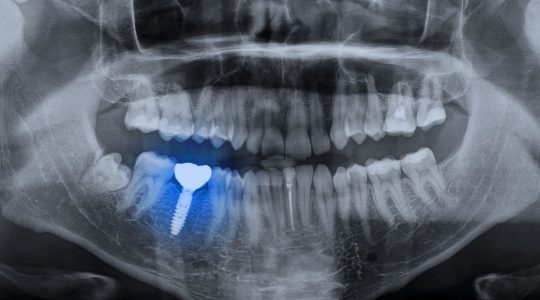
Can a dental implant cause rejection?
Even the best dental implants can cause patient rejection. Do you want to know how and why this happens? We tell you.
Read More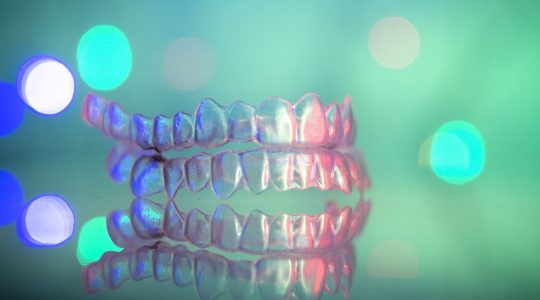
Everything you need to know about Invisible Orthodontics
Today's technology makes it possible to achieve the smile you have always wanted without having to live with traditional and unattractive appliances.
Read More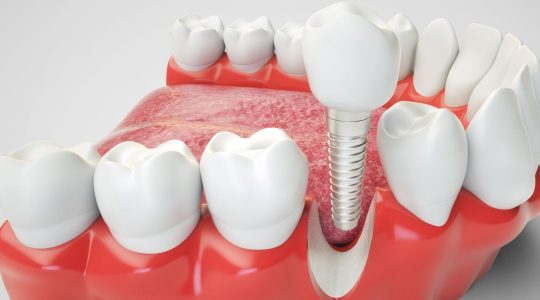
Myths about Dental Implants
Nowadays it is possible to place dental implants even if we have very little bone, since there are regeneration techniques.
Read More